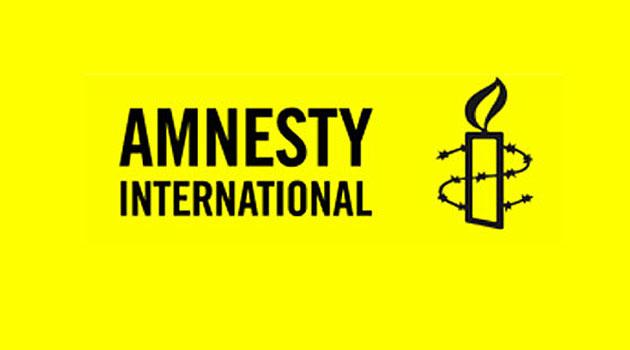Amnesty International: We demand justice for the victims of the Slovak Police raid on the Roma settlement of Moldava nad Bodvou

Amnesty International (AI) finds the approach taken by the authorities toward investigating charges of police violence from 2013 in the Romani community living on Budulovská Street in Moldava nad Bodvou, Slovakia to be unjust. AI believes the authorities’ handling of this case has violated international treaties on human rights.
The world’s biggest human rights organization is calling for a petition to be signed demanding justice for the victims who have recently been charged with giving false testimony. Slovak Police allege that four men fabricated their stories of having been assaulted by officers during the raid.
The police intervention took place on 19 June 2013. More than 60 Slovak Police riot units physically and verbally attacked 31 Romani men and women who offered them no resistance.
In addition to committing physical and psychological violence against these people, police damaged their property. The police did not begin to investigate the case until 2014 and ultimately closed it in August 2017.
Before closing it, they charged some of the men who testified that officers physically assaulted them with giving false statements in May 2017. Amnesty International has now taken up this case; news server Romea.cz is publishing AI’s full statement on this case in Czech and English here and its call for signatures to the petition.
Amnesty International on the charges against the victims of police violence in Moldava nad Bodvou, Slovakia
Amnesty International considers the approach taken by the Slovak authorities toward investigating the police officers charged with committing brutality in 2013 against members of the Romani community on Budulovská Street in Moldava nad Bodvou, as well as the approach taken toward investigating the victims of police brutality on suspicions of have committing the offense of giving false testimony to be a violation of international human rights conventions. The charges that were brought against four victims on 18 May and 30 August 2017 represent a form of intimidation that endangers access to justice.
During the police raid on 19 June 2013, more than 60 members of police riot units physically and verbally assaulted 31 Romani men and women who did not resist their intervention. In addition to committing physical and psychological violence against these people, police damaged their property.
The first investigation into what happened to the victims did not take place until almost eight months after the police attack. One officer was eventually identified during that investigation (many wore balaclavas during it which made identification impossible).
Medical reports have confirmed the victims’ injuries. Despite that fact, the Section on Control and Inspection of the Services (hereinafter the “Inspection”) gradually halted during the course of 2015 all of the prosecutions against members of the police that had been opened in 2014 by the Director of Inspection after the police were ordered to do so by the Prosecutor-General.
At the beginning of 2016, the Prešov Regional Prosecutor rejected a complaint filed by the victims against the Inspection’s decision to halt the prosecutions. The victims then filed a complaint against that decision to the Constitutional Court, which has not yet ruled on the issue.
Several years after this intervention, therefore, criminal responsibility still has not been assigned to the members of the police who participated in it. That fact has not escaped the UN Committee against Torture, which in 2015 called on the Slovak Republic to accelerate beginning an independent investigation of this case.
The approach of the Slovak authorities to investigating police violence, which is a form of inhuman and degrading treatment, sparks concerns that international treaties are being violated in Slovakia. The European Convention on Human Rights obligates Slovakia to quickly, thorougly and transparently investigate cases of violence.
The European Court of Human Rights, in its judgment in the Načova v Bulgaria case, has ruled that one component of the obligation to thoroughly investigate reports of crime is uncovering any eventual racial motivation for violent crime. In cases where charges of violence are made against police officers, Slovakia is also bound by the United Nations Basic Principles on the Use of Force and Firearms by Law Enforcement Officials.
Principle 7 of that document obligates Slovakia to ascertain whether the illegal use of force in an incident involving police officers rises to the level of a felony. Victims of violent crimes committed by police have the right to an effective remedy and a thorough investigation of their case.
Enjoyment of that right is not restricted just to cases of death or severe injury. The use of force outside of its strict prescription by law, including the use of force in contravention of the principle of equal treatment, constitutes the illegal use of force in contravention of Principle 7.
Slovak legislation already categorizes such behavior as felony abuse of power by a public official in the area of the disproportionate or groundless use of force. Also in accordance with Principle 23 of the Basic Principles, the victims of violent crimes committed by police officers have the right to file a complaint against the disproportionate use of force.
Amnesty International has serious concerns that the prosecutions now underway as a consequence of the authorities’ reaction to the complaints of police violence in 2013 made by the residents of Budulovská Street constitute an intervention into the rights of the victims and represent a form of intimidation. Those victims who have attempted to stand up for their rights today face charges of making false accusations (perjury).
It is apparent that the investigation of the police brutality committed during the intervention in the Romani community in 2013 does not fulfill the basic requirements of international human rights conventions. The investigation was not conducted under strict supervision – it did not begin until February 2014 and it still has not led to remedy and the taking of responsibility.
The Inspection is staffed by police officers who are investigating their own colleagues. Amnesty International therefore asks the following:
1) For the prosecutor to protect these victims of police violence and for all criminal proceedings underway against those who were victimized during the police intervention in June 2013 to be immediately closed.
2) For the police to be immediately investigated by an independent body, and for the possible racial motivation for this violence be taken into consideration during that independent investigation.
3) For the victims to be provided remedy and restitution for the damages suffered during the police intervention.
You can support justice for the victims of this police raid by signing the petition (in Slovak) here.
